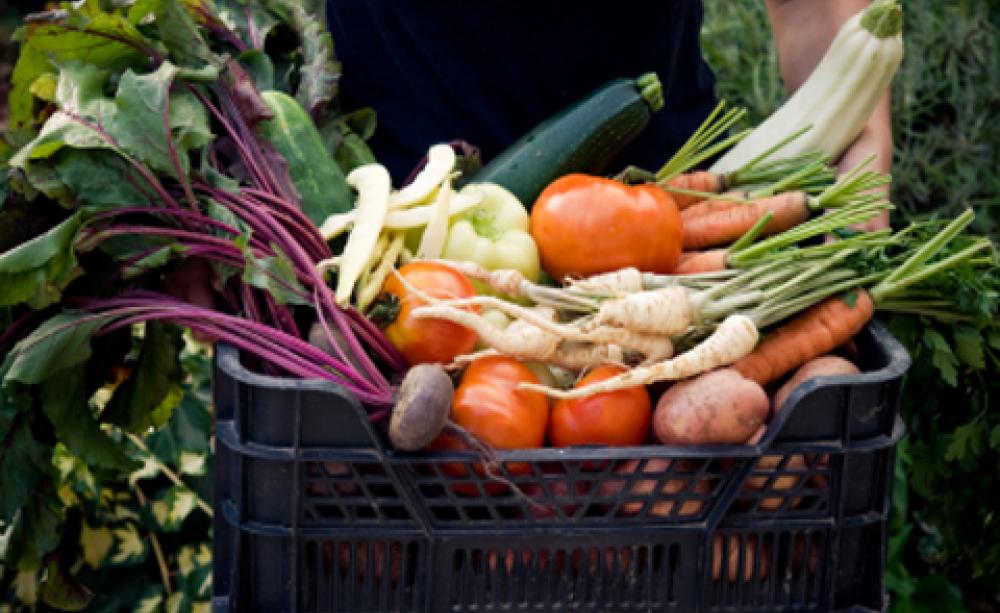-
If everyone in the UK swapped just one more red meat-based meal to a plant-based meal per week, we would cut the UK’s greenhouse gas emissions by 50 million tonnes.
This reduction is the equivalent of taking 16 million cars off the road - resulting in up to an 8.4 percent reduction in the UK’s total greenhouse gas emissions2.
The analysis was undertaken on behalf of The Meatless Farm Co by Joseph Poore, lead author of a recent global study on the environmental impacts of food, to calculate the environmental benefits of changing diets in Britain.
Emissions target
Poore compared red meat meals versus their plant-based equivalents, analysing everything from production on the farm and lifecycle environmental impacts, to energy use, transportation throughout the supply chain, packaging and disposal and food loss and waste at each stage. As well as the carbon benefits from trees re-growing on the land no longer required to produce meat.
As well as revealing a significant reduction in greenhouse gas emissions, these new findings demonstrated that switching just one red meat meal to plant-based a week could result in a 23 percent reduction (8 million hectares) in the UK’s domestic and international farmland use, and a 2 percent reduction in the UK’s water use (the same as taking 55 fewer showers per person per year).
In light of these new results, The Meatless Farm Co has launched The Meatless Consumption Target, a campaign aimed at encouraging UK households to eat one more plant-based meal per week by 2021.
Establishing such a target is an opportunity to look at the nation’s diet in the same way we look at the UK carbon emissions target.
Flexitarians
Rob Woodall, CEO of The Meatless Farm Co explains: “It’s no secret that plant-based diets are becoming increasingly popular, and most of this is being driven by a new generation of ‘flexitarians’.
"The real challenge is getting traditional meat eaters to adopt a more plant-based diet. That’s why The Meatless Consumption Target is so important – it’s a powerful yet simple way of introducing more plant-based eating.
"It isn’t about being strictly anti-meat either - we can drive real change by striking a good balance. Just by swapping one meat meal to plant-based once a week we can collectively have a huge impact on the environment.”
To coincide with the launch of its Meatless Consumption Target, The Meatless Farm Co conducted some consumer research with One Poll into people’s attitudes to meat-free and the impact on the environment.
Stand-out findings were: 53 percent of respondents are likely to cook a meat-free meal at home; 41 percent claim to have eaten a meat-free meal in a pub or restaurant; 42 percent are likely to increase the amount of meat-free meals they eat this year; 52 percent agree that eating meat-free alternatives are good for the environment and 56 percent would eat more meat-free meals if they better understood the potential positive impacts on the environment.
Lacking information
And it’s not just about eating fewer meat meals at home that matters. 74 percent of people think restaurants, pubs and cafes should be doing more to be more environmentally friendly.
Woodall added: “What all of this highlights is that people are looking to make environmental choices to go meat-free, and in fact many are already doing that, but information is lacking about how families in particular can adjust their eating habits to incorporate plant-based alternatives.
"For many, going meat-free still has a stigma attached to it, particularly in terms of taste. The simple fact is that if food isn’t delicious people won’t eat it. ‘’
“Therefore, the challenge for plant-based food producers like ourselves is to create easy-to-use, plant-based foods for vegans, flexitarians and carnivores which are environmentally friendly but also stack up on taste and texture.
"All it takes is a little imagination and some tasty ingredients to get people switching away from red meat to a more sustainable way of eating. But we need all sections of the food industry to be pushing that message in order to achieve the sorts of reductions in greenhouse gas emissions scientists have highlighted are possible.”
High protein
The meat-alternative market is already big business and is expected to be worth £4.1bn by 2020.
The Meatless Farm Co has spent two years developing fresh, plant-based mince and burgers that are delicious, healthy and perfect for making family favourites.
A high protein alternative to meat, the fresh mince and burgers are made with plant-based ingredients; from pea protein to chicory root and enriched with vitamins and minerals.
The fresh products are a high source of protein and good source of fibre, just like meat, whilst also being gluten-free and vegan friendly.
This Article
This article is based on a press release from Meatless Farm Co.







